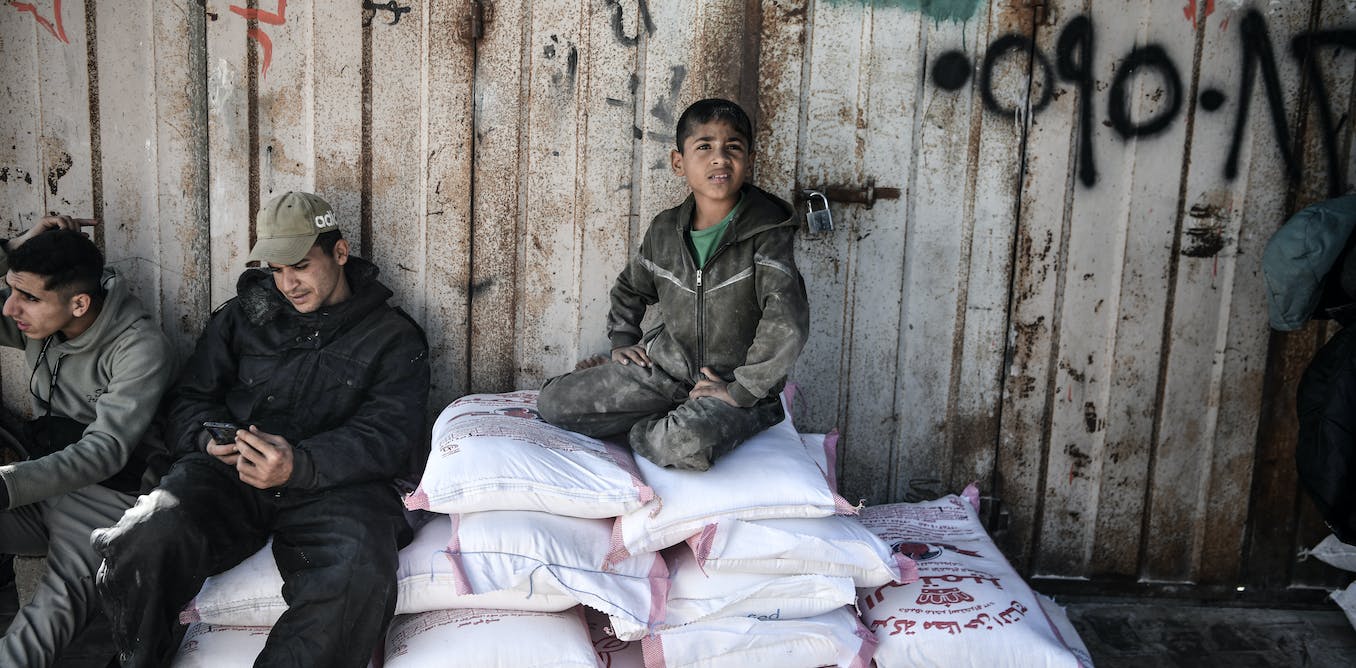Several countries, including the United States, have suspended funding to the United Nations Relief and Works Agency for Palestine Refugees in the Near East (UNRWA) following allegations that 12 of its employees participated in a Hamas attack. The funding cuts will impact 1.7 million Palestinian refugees in Gaza and 400,000 Palestinians without refugee status who benefit from the agency’s infrastructure. Critics argue that these funding cuts amount to collective punishment against Palestinians and are part of a wider pattern of the politicization of aid to Palestinian refugees. The UNRWA was established in 1949 to provide aid to Palestinian refugees who were displaced during the Arab-Israeli war and the creation of the state of Israel. It has been the primary aid organization providing food, medical care, schooling, and housing for Palestinians across Jordan, Lebanon, Syria, the West Bank, and Gaza Strip.
The UNRWA has been subject to political criticism since its inception, with Palestinians, Israelis, and donor countries accusing it of acting politically. While the organization officially adheres to the U.N. General Assembly’s Resolution 194, which calls for the return of Palestinian refugees to their homes, it has been criticized for focusing on economic integration and education rather than advocating for the right of return. Israel has also been suspicious of the UNRWA’s role in refugee camps and its provision of education, but the organization’s operations save Israel millions of dollars each year in services it would be obliged to deliver as the occupying power. The U.S., as the primary donor to the UNRWA, has repeatedly used aid as a means to prevent radicalization among refugees and has previously cut funding to the agency and other U.N. bodies in response to issues related to the status of Palestinians.
The politicization of refugee funding is not unique to the Palestinian case. After World War II, different international organizations were established to help refugees, but certain groups were strategically excluded from the refugee definition. Funding for refugee aid is often earmarked for specific activities or locations, allowing donors to dictate which refugees receive aid. In the case of the UNRWA, voluntary contributions from member states make up the majority of its funding, and these contributions can be earmarked. As a result, any cuts to UNRWA funding will have significant implications for Palestinian refugees in Gaza, especially at a time when they are already facing numerous challenges.
Overall, the suspension of funding to the UNRWA highlights the politicization of aid to Palestinian refugees and follows a wider pattern of using aid as a foreign policy tool. The funding cuts will have a detrimental impact on the millions of Palestinian refugees who rely on the UNRWA for essential services.









